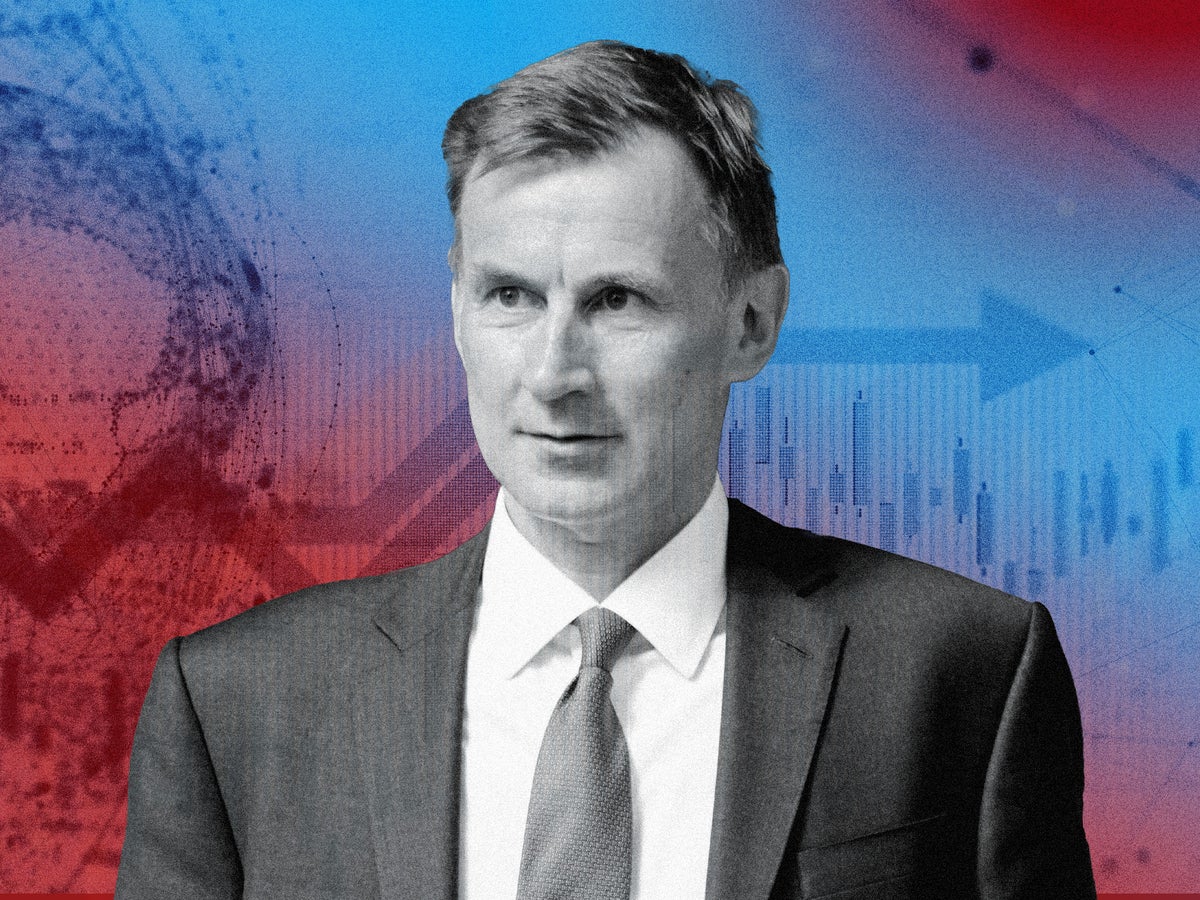
Economists have warned of a “heightened” risk of recession after new figures revealed that UK businesses suffered an unexpectedly sharp downturn during August.
Aside from the Covid crisis, the latest purchasing managers’ index (PMI) points to one of the sharpest falls in Britain’s business activity since the 2008 banking crisis.
The S&P Global-CIPS Flash UK PMI fell from 50.8 in July to 47.9 in August on the back of lower orders and higher borrowing costs for UK firms – with both the services sector and manufacturing seeing shock contractions.
Chris Williamson, chief business economist at S&P Global Market Intelligence, said it showed that the fight against inflation through higher interest rates was “carrying a heavy cost in terms of heightened recession risks”.
He added: “A renewed contraction of the economy already looks inevitable, as an increasingly severe manufacturing downturn is accompanied by a further faltering of the service sector’s spring revival.”
It comes as Citi said it now expected the UK to fall into recession. The investment bank forecast that global growth in 2024 will slow to below 2 per cent, sparked by recessions in the UK and the US and a slowdown in China.
The PMI data showed the first monthly decline since January and was significantly below expectations, following a consensus among economists of a 50.3 reading. Any reading above 50 is considered to show that the sector is growing, while anything below represents a contraction.
Mr Williamson said it showed that GDP would fall by 0.2 per cent in the second quarter, with “worse likely to come”. He added: “Barring pandemic lockdown months, this is one of the steepest contractions since the global financial crisis.”
John Glen, CIPS’ chief economist, said that high interest rates “are starting to have their intended effect of dampening demand and reducing inflationary pressures”.
Martin Sartorius, the CBI’s principal economist, said: “With output volumes contracting at their fastest pace since the Covid-19 pandemic and order books deteriorating, this survey makes for gloomy reading for manufacturers.”
Rishi Sunak and Jeremy Hunt are once more under pressure from Tory MPs to cut taxes— (Downing Street)
It comes as the chancellor, Jeremy Hunt, is once again under pressure from Tory MPs to announce tax cuts at the autumn Budget, after UK government borrowing was shown to be lower than expected last month.
Former business secretary Sir Jacob Rees-Mogg said it exposed “the continued failure of the OBR [Office for Budget Responsibility]” and left some headroom for tax cuts. “This would pay for the total abolition of death duties and leave billions to spare,” he added.
But Mr Hunt said the government would be “sticking to our plan” – with borrowing still more than four times higher than a year ago, representing the fifth-highest July borrowing since records began.
Pat McFadden, Labour’s shadow chief secretary to the Treasury, told Sky News that he was “alarmed” at hearing Tory calls to “repeat” the sort of unfunded tax cuts last seen in Liz Truss’s disastrous mini-Budget.
Business and trade secretary Kemi Badenoch is in India for talks— (Getty)
Meanwhile, experts and officials have sought to calm expectations of a post-Brexit UK-India trade deal, which could boost Britain’s economy, being agreed this autumn.
International trade secretary Kemi Badenoch, who is in India today for talks with G20 trade and investment ministers, said that the prospect of a free trade agreement showed that the “voices of doom” were wrong.
But government sources have sought to play down the chances of a deal being agreed before Rishi Sunak’s planned visit to India in September – with his ministers’ refusal to offer more visas to Indian workers thought to be a sticking point.
Susannah Streeter, head of money and markets at Hargreaves Lansdown, warned that such a trade deal is likely to stay “tantalisingly out of reach” unless the Tory government eases its stance on immigration.
A Department for Business and Trade spokesperson said: “We’ve made good progress in closing chapters, and are now laser-focused on goods, services, and investment.
“While we cannot comment on ongoing negotiations, we are clear that we will only sign when we have a deal that is fair, balanced, and ultimately in the best interests of the British people and the economy.”
Under Boris Johnson’s premiership, the government had said it was aiming to complete a deal by Diwali in October 2022 – but that deadline was missed.







